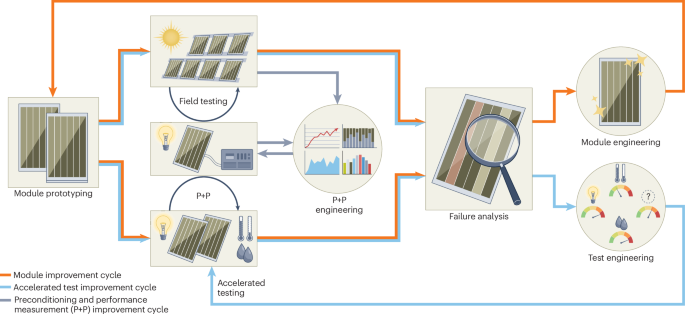Real Estate Tax vs. Property Tax: Key Differences
Taxes might not be the most exciting part of homeownership, but understanding them is essential — especially when the terms can get confusing. “Real estate tax” and “property tax” are often used interchangeably, but they don’t always mean the same thing. Whether you’re budgeting for a townhouse in Sacramento, CA, or preparing to buy a […] The post Real Estate Tax vs. Property Tax: Key Differences appeared first on Redfin | Real Estate Tips for Home Buying, Selling & More.


Taxes might not be the most exciting part of homeownership, but understanding them is essential — especially when the terms can get confusing. “Real estate tax” and “property tax” are often used interchangeably, but they don’t always mean the same thing.
Whether you’re budgeting for a townhouse in Sacramento, CA, or preparing to buy a cabin near Asheville, NC, knowing the difference can help you avoid surprises and make smarter financial decisions. In this Redfin article, we’ll break down real estate tax vs. property tax, highlight how they’re applied, and explain what each one really means for homeowners.
What is real estate tax?
Real estate tax is a levy on real property, meaning land and any permanent structures affixed to it, such as a home, garage, or commercial building. If you’re a homeowner, this is likely the primary property-related tax you pay. Local governments — typically counties or municipalities — assess and collect these taxes annually or semi-annually to fund services like public schools, emergency services, infrastructure, and parks.
The amount you owe depends on two factors:
- The assessed value of your property, determined by your local tax assessor.
- The local tax rate, which varies widely from one area to another.
For example, a homeowner in San Francisco may pay a significantly different rate than someone in a small town in Ohio, even for similarly valued properties. Most mortgage lenders include real estate taxes in monthly escrow payments, making them easy to overlook — but they’re always there.
What is property tax?
Property tax is a broader term. It includes real estate tax but can also apply to personal property—movable items that aren’t permanently attached to land. This can include:
- Vehicles
- Boats
- Trailers
- Business equipment or machinery
The rules and rates for personal property tax vary by state and municipality. For instance, Virginia charges an annual personal property tax on vehicles, while neighboring states may not. These taxes are usually smaller and are often paid during vehicle registration or business filings.
So while real estate tax is a type of property tax, not all property tax is related to real estate.

Real estate tax vs. property tax: what’s the difference?
The key distinction comes down to what’s being taxed. Here’s a side-by-side comparison:
Feature Real Estate Tax Property Tax What’s taxed? Land + permanent structures (real property) Real property and personal property (vehicles, equipment) Who collects it? Local governments (cities, counties) Local and/or state governments Examples Homes, condos, commercial buildings Cars, RVs, boats, business assets Payment frequency Annually or semi-annually Varies (annually, during registration, or quarterly) How it’s calculated Based on property value and location-specific tax rate Based on item value, use, and jurisdiction
While many use these terms interchangeably, understanding the differences is especially important when budgeting or planning for long-term expenses tied to your home or business.
Why the confusion?
One reason these terms get blurred is that mortgage documents, county records, and escrow statements often just say “property tax,” even when they refer only to real estate tax. Additionally, many states and municipalities don’t levy personal property taxes at all, so homeowners might never encounter them.
Adding to the complexity, real estate tax is sometimes labeled as real property tax, reinforcing the overlap. But in states where both types are collected, the distinction becomes much more relevant.
How these taxes impact you as a homeowner
Real estate taxes can represent a substantial ongoing cost. In high-tax states or metro areas, they can add thousands of dollars to your annual housing expenses. Most homeowners pay these through escrow, but if you own your home outright or invest in multiple properties, you’ll need to account for these payments directly.
Personal property taxes may apply if:
- You own a boat or RV.
- You run a home-based business using computers, tools, or machinery.
- You live in a state that taxes vehicles or recreational equipment annually.
Either way, both taxes are important to track for budgeting, tax deductions, and ownership costs.

State-by-state snapshot: how property taxes vary
Here’s how real estate and personal property taxes are handled in a few states:
State snapshot: Property tax variations
- California: Real estate tax only; no state-level personal property tax on vehicles.
- Virginia: Real estate tax + annual personal property tax on vehicles.
- Texas: No state income tax, but high real estate tax rates; limited personal property tax.
- Florida: No personal property tax on vehicles; real estate tax assessed annually by counties.
Each state has different property tax laws, so it’s important to check your local regulations if you’re unsure what applies in your area.
Frequently asked questions
Yes, homeowners can deduct up to $10,000 in combined state and local taxes, including property taxes, under the SALT deduction.
Differences in assessed value, exemptions, or even renovations can lead to variations, even in the same neighborhood.
Not directly. But landlords typically factor property tax into the rent, so renters may still feel the impact.
It depends on whether the mobile home is permanently affixed to land. If it is, it’s taxed as real estate. If not, it may be taxed as personal property.
Bottom line: real estate tax vs. property tax, explained
The terms real estate tax and property tax may sound interchangeable, but they’re not identical. Real estate tax applies specifically to land and buildings, while property tax can also include movable personal assets like vehicles or boats.
Understanding which taxes apply to you — and how much you’re paying — can help you budget smarter, avoid surprises, and make more informed decisions, whether you’re buying your first home or managing a portfolio of properties.
The post Real Estate Tax vs. Property Tax: Key Differences appeared first on Redfin | Real Estate Tips for Home Buying, Selling & More.


















































































































































